By SIBUSISO DLAMINI | 2025-01-12
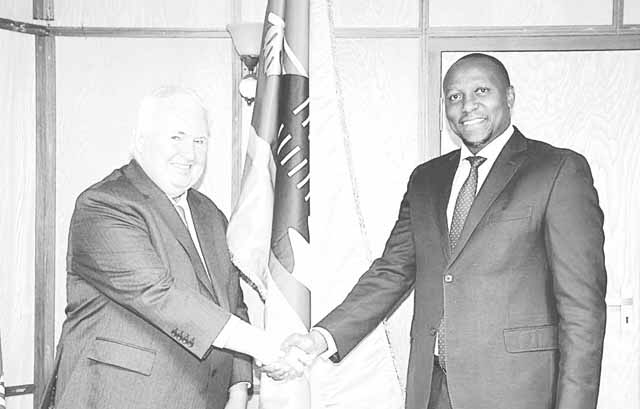
The United Kingdom (UK)’s decision to grant asylum to former Member of Parliament (MP) Mduduzi Simelane does not imply endorsement of any political stance, says British High Commissioner Colin Wells.
Simelane, who fled the country in 2021, was granted asylum in the UK last year.
This was after he and his two parliamentary colleagues, Mduduzi Bacede Mabuza and Mthandeni Dube, faced charges under the Suppression of Terrorism Act 2008 in the same year.
The two other MPs, Mabuza and Dube, were arrested, charged and later convicted, while Simelane did not surrender to authorities.
He instead, fled the country, and on July 26, 2021, was officially declared a fugitive of the law.
“The decision to grant him asylum simply reflects the UK’s adherence to international human rights obligations,” said Wells, explaining the legal and procedural framework underpinning the decision.
He distanced the high commission from any direct involvement in the matter, emphasising that the process was managed independently by the UK Home Office, which assesses applications based on established international standards.
“Even though, I cannot really say much about the matter, what I can say is that such decisions are made on merit, and rooted in legal obligations,” he said.
The MPs initiated their campaign for political reforms during a parliamentary sitting, where they proposed that the Prime Minister be elected by the people, arguing that this would ensure greater accountability to citizens.
Constitution
Currently, the country’s constitution grants His Majesty the King the prerogative to appoint the prime minister on the recommendation of the King’s Advisory Council, Liqoqo.
The calls for reform found resonance far beyond Parliament, particularly among the youth, as tensions heightened over the circumstances surrounding the death of Thabani Nkomonye, a 25-year-old law student at the University of Eswatini (UNESWA).
Nkomonye tragically lost his life in a car accident along the Mhlaleni–Nhlangano Road in Nhlambeni. His vehicle, a Mazda Demio sedan, was discovered stationary approximately 15 metres from the main road.
Police towed the car to the Matsapha Police Station that same night, but his whereabouts remained unknown at the time.
Even though the police reportedly initiated searches for Nkomonye on the night of the accident and continued their efforts the following day, his body was not found until six days later, around 25 kilometres from where the vehicle had been recovered.
The delay in discovering Nkomonye’s remains prompted widespread concern and led to a variety of questions across society.
Speculation grew on social media, with many users raising doubts about the sequence of events and demanding for clarity.
These sentiments coalesced into the #JusticeForThabani movement, whereby citizens sought to understand the full circumstances surrounding the incident.
The calls for accountability eventually culminated in widespread delivery of petitions to various Tinkhundla centres across the country.
The petitions delivery was disrupted when the then acting Prime Minister Themba Masuku banned the gatherings, citing violations of COVID-19 regulations.
This decision escalated tensions between the State and the public, eventually leading to the worst unrest ever seen in the history of the nation.
As the situation deteriorated, law enforcement authorities issued arrest warrants for Simelane, Mabuza and Dube.
The warrant of arrest for Simelane, issued on July 8, 2021, accused him and his colleagues of incitement to revolt against the country’s constitutionally established government.
The charge sheet alleged that the three MPs acted jointly to incite public unrest, which subsequently resulted in riots across all regions of the country.
According to the Crown’s case, the riots led to loss of life, injuries and significant destruction of both public and private property.
Simelane’s absence from parliamentary sittings also resulted in Parliament invoking Section 98(1) (c) of the Constitution, which stipulates that a member’s seat becomes vacant if they miss 20 consecutive sittings without written permission from the presiding officer or fail to provide a reasonable explanation to the Parliamentary Committee on Privileges. As a result, his seat was declared vacant.
Opens doors for eswatini artists
The British High Commissioner to Eswatini, Colin Wells, has expressed his commitment to promoting local artistic talent by ensuring that the walls of the official UK residence in the country are adorned with pieces created by local artists.
Wells shared his vision for transforming the high commission’s residence into a vibrant showcase of the country’s rich artistic diversity during an interview.
“I want this to be a modern British residence filled with Emaswati talent—art on the walls, modern art, and even sculptures where there is space for them,” Wells said.
He described the current state of the residence as ‘dull’, and emphasised his desire to inject colour and life through local artistry. Wells’ passion for the creative sector has been evident in his recent visits to local art galleries and the museum in the past couple of months.
“I believe local artists have immense potential and this was witnessed during an event we recently hosted to celebrate the country’s artistic diversity where the country;s incredible talent was on full display,” he said.
“We showcased incredible Emaswati talent—visually impaired singers, a performer with albinism and artists with disabilities. But they weren’t average; they were brilliant,” he added. This initiative, Wells explained, is part of a broader effort to create opportunities for cultural exchange between Eswatini and the UK. He said he envisions collaborations that go beyond art to include music, sport,and other creative fields.
Wells believes that cultural exchanges and artistic collaborations can play a significant role in strengthening diplomatic ties between the two countries. By promoting Emaswati talent, he aims to highlight the country’s creativity on an international stage while fostering mutual appreciation between Eswatini and the UK.
“Let’s think about where we could promote local talent beyond the borders, and perhaps bring in British talent as well,” he said.
‘i jumped at opportunity to come to eswatini’
British High Commissioner, Colin Wells,says the prospect of working in the country was too good to pass up, so he jumped at the opportunity when it was presented. Before his current assignment, Wells served as the British ambassador to Mauritania, an Islamic republic with a predominantly desert landscape.
“When I was asked if I’d like to go, I immediately said yes. It’s a great opportunity,” he said, adding that his enthusiasm stemmed from the country’s strong ties to the United Kingdom and its rich cultural heritage.
Wells said the contrast between his previous post and his current one was striking, stating that the most obvious one is the significance of the Christian faith, which he said is embraced with the same passion as Islam is in Mauritania.
“In Mauritania, the environment is harsh and arid, with very little farming, and its historical ties to the UK are minimal, given its French colonial past. Here in Eswatini, there is a deep connection with Britain, and the cultural differences are fascinating,” he explained.
Wells also said his familiarity with the country predates his posting, making it known that he was exposed to stories of the kingdom, particularly during the reign of King Sobhuza II, whose passing in 1982 was a major news event in the UK.
“I remember Eswatini being on the television a lot when I was young. King Sobhuza II was such a long-serving monarch, and his passing was significant. That stuck with me, and now I have the privilege of working here,” he stated.
With over a decade of diplomatic experience, Wells has served in 11 countries, including Ivory Coast, Sudan, Nigeria, and Ascension Island, a remote British territory.
“The beauty of being a diplomat is experiencing the richness of different cultures. Every posting is unique, and I’ve enjoyed soaking in the experiences, whether it’s the Arabic influence of Mauritania or the vibrant traditions of Eswatini,” he said.
share story
Post Your Comments Below
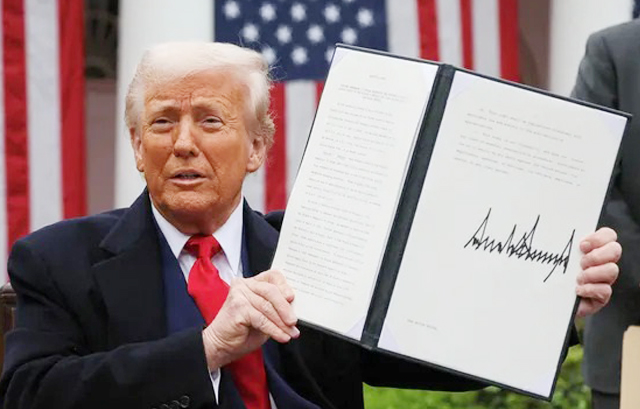
United States President Donald Trump has announced sweeping new import taxes on all goods enterin...
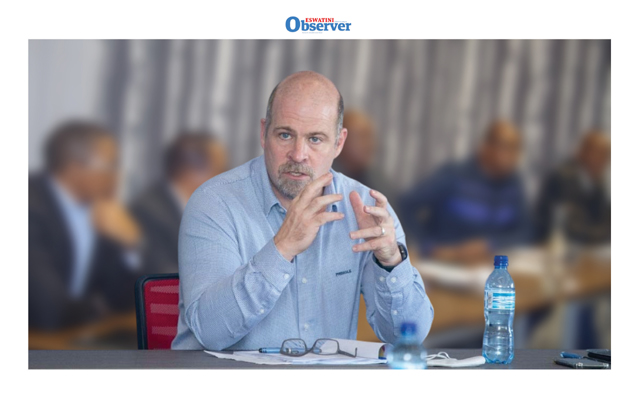
BUSINESS Eswatini (BE) Vice President Andrew le Roux has stepped down from his position permanent...
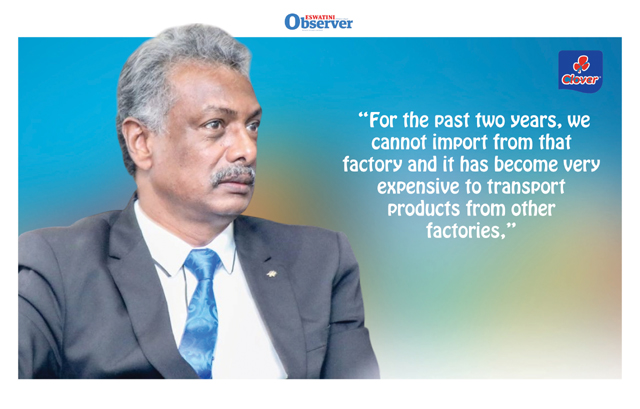
Clover Swaziland has called upon minister of finance to reconsider the current taxation structure...
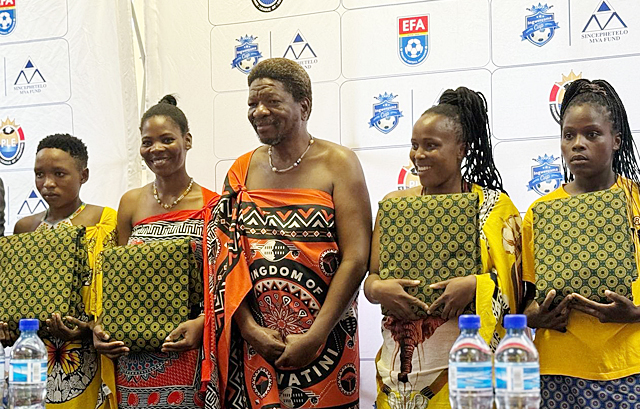
IN a significant gesture, their Majesties blessed the participants of the Ingwenyama Cultural Cup...
All material © Swazi Observer. Material may not be published or reproduced in any form without prior written permission.
Design by Real Image Internet